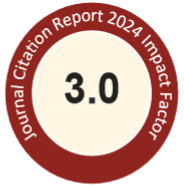Abstract
Electrolyzed water is a sustainable disinfectant, which can comply with food safety regulations and is environmental friendly. A two-factor central composite design was adopted for studying the effects of electrode gap and electric current on chlorine generation efficiency of electrolyzed deep ocean water. Deep ocean water was electrolyzed in a glass electrolyzing cell equipped with platinum-plated titanium anode and cathode in a constant-current operation mode. Results showed that current density, chlorine concentration, and electrolyte temperature increased with electric current, while electric efficiency decreased with electric current and electrode gap. An electrode gap of less than 11.7 mm, and a low electric current appeared to be a more energy efficient design and operation condition for the electrolysis system. © 2017
ScienceDirect Link
Recommended Citation
Hsu, G.-S.W. and Hsu, S.-Y.
(2018)
"Effects of electrode gap and electric current on chlorine generation of electrolyzed deep ocean water,"
Journal of Food and Drug Analysis: Vol. 26
:
Iss.
2
, Article 48.
Available at: https://doi.org/10.1016/j.jfda.2017.07.011
Creative Commons License

This work is licensed under a Creative Commons Attribution-Noncommercial-No Derivative Works 4.0 License.
Fulltext URL
https://www.sciencedirect.com/science/article/pii/S1021949817301485/pdfft?md5=f22e8dc695fdafa18e7e3a6e28b1be5d&pid=1-s2.0-S1021949817301485-main.pdf
Included in
Food Science Commons, Medicinal Chemistry and Pharmaceutics Commons, Pharmacology Commons, Toxicology Commons


Abstract Image